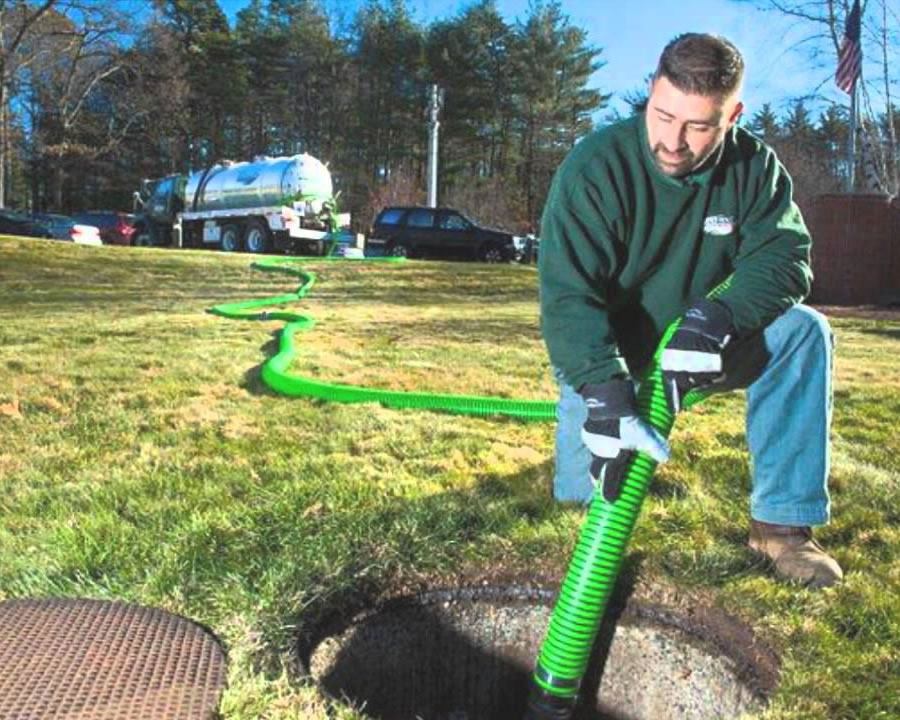
13
Regular septic tank pumping is a fundamental aspect of your septic tank’s maintenance routine. In this article, we'll provide you with essential pumping tips that every homeowner should know to ensure the longevity and efficiency of your septic system.
A septic tank is an underground wastewater treatment system that collects and breaks down household waste. Over time, solid waste and sludge accumulate at the bottom of the tank, reducing its capacity and potentially leading to clogs and backups. Septic tank pumping involves removing the accumulated solids and sludge from the tank, preventing these issues and maintaining the system's functionality.
Establishing a regular septic tank pumping schedule is crucial. The frequency of pumping depends on various factors, including the size of your tank, the number of occupants in your home, and your water usage. As a general guideline, most septic tanks should be pumped every 3 to 5 years. However, larger households or those with high water usage might require more frequent pumping.
When it's time to pump your septic tank, it's essential to hire a reputable and licensed septic company. Professional septic technicians at Charlotte Septic Pros have the expertise, equipment, and knowledge to perform the job safely and effectively. They can also conduct a thorough inspection of your tank and provide insights into its condition, potential septic tank repairs, or the need for septic tank installation.
While a regular pumping schedule is recommended, it's essential to be aware of signs that your septic tank may be reaching capacity sooner than expected. These signs include slow drains, gurgling sounds in your plumbing, foul odors around your property, or sewage backups. If you notice any of these indicators, it's time to contact a septic company for an inspection and possible pumping.
Excessive water usage can overwhelm your septic system and lead to the need for more frequent pumping. Conserving water by fixing leaks, using water-efficient appliances, and spreading out household tasks like laundry over the week can help reduce the strain on your septic system.
What goes down your drains can impact the health of your septic system. Avoid flushing non-biodegradable items, chemicals, grease, and excessive amounts of cleaning products down the toilet or drains. These substances can disrupt the natural bacteria in the tank that break down waste, leading to potential clogs and system imbalances.
Regular maintenance and prompt repairs are key to preventing septic tank issues that could lead to costly repairs or replacements. If you notice any unusual changes in your plumbing, drainage, or sewage disposal, contact a professional septic company for a thorough assessment and necessary repairs.
In some cases, septic tank repair may not be enough to restore your system's functionality. If your septic tank is old, damaged, or consistently experiencing issues, it might be time for a new septic tank installation. A professional from Charlotte Septic Pros can guide you through the process, helping you choose the right tank size, type, and location for your property's needs.
Septic tank pumping is a crucial responsibility for homeowners who rely on septic systems. Following these essential tips can help you maintain a healthy and efficient septic system, preventing costly repairs and ensuring the well-being of your property and the environment. By taking these steps, you can enjoy a smoothly operating septic system for years to come.

22
Can Bacteria Additives Eliminate the Need for Pumping? If you own a home with a septic system, you’ve probably seen…
Read more
12
A single slow drain in your home can feel like a minor inconvenience. Maybe the sink takes a little longer…
Read more
05
Are Slow Drains a Septic Issue or Just a Clog? Slow drains are one of those household problems that start…
Read more
02
What Septic Service Techs See That Homeowners Miss Most homeowners only think about their septic system when something goes wrong.…
Read more
21
Simple Habits That Protect Your Septic System A well-functioning septic system does its job quietly, but the moment something goes…
Read more
14
Pump Now or Pay Later: The Real Cost of Skipping Maintenance A properly functioning septic system is easy to forget…
Read more
11
Why Your Septic System Always Acts Up at the Worst Time Homeowners often feel that septic problems strike at the…
Read more
04
Early Warning Signs Your Septic Tank Needs Pumping For homeowners who rely on a septic system, routine maintenance is not…
Read more
29
Why Does My Septic System Smell Fine One Day and Terrible the Next? If you own a home with a…
Read more
19
Is Your Septic System Overdue? Simple Home Checks You Can Do Today For many homeowners, the septic system is a…
Read more